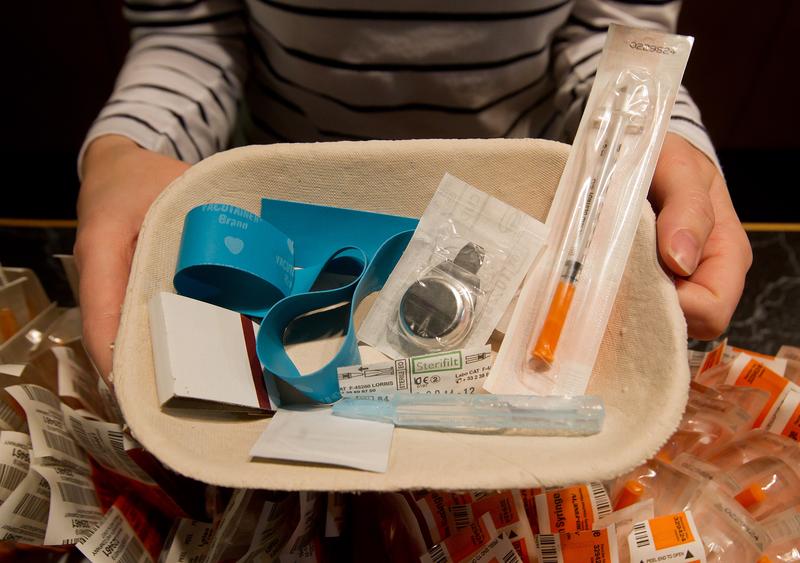
Mayor de Blasio has endorsed a plan to establish city-sanctioned supervised injection sites for drug users.
In a report released Thursday afternoon, the Mayor's Office called for the creation of a pilot program to test out so-called "safe injection sites" as a means to curb deaths from drug overdoses. The plan would establish centers in four New York City neighborhoods that would provide users with clean needles, a supervised cubicle, and emergency care in case of an overdose.
"Supervised injection facilities provide support and connections to health and social services to marginalized individuals, particularly shelter residents, so people who inject drugs can reduce their risk of death and take positive steps toward healthier lives," the Mayor's Office writes in the report.
While the plan has been praised by drug reform advocates, safe injection sites are controversial.
There are currently no safe injection sites in the United States, though New York is one of several major cities (including San Francisco and Philadelphia) that are considering them.
Canada has more than a decade of experience with safe injection sites since the country's first facility opened in Vancouver in 2003. The country now has around 100 such facilities.
Bill Spearn is a police inspector in Vancouver. He said he used to think the sites would draw crime and encourage drug use, but he's changed his mind after seeing them in action.
"Simply having a place to inject drugs isn’t a long term solution. It’s a short term solution to keep people safe, to keep them alive. But the goal is to get them into treatment and not just Narcan them back to life," Spearn said.
In addition to safe, hygienic spaces, safe injection sites also provide people with access to social services like addiction counseling—something that de Blasio's plan stresses. His administration's report does not mention the specific locations where the four sites would be located, though it suggests Hunts Point in the Bronx and East Harlem — two neighborhoods with high overdose rates. The report estimates the four sites would prevent up to 130 overdose deaths a year.
Before the city can start searching for potential sites, it has to get permission from both the state Health Department and the federal government.
